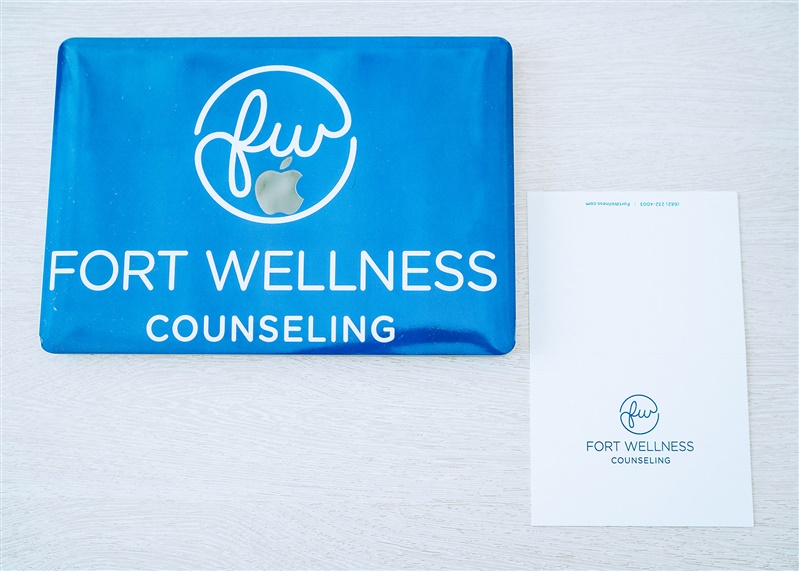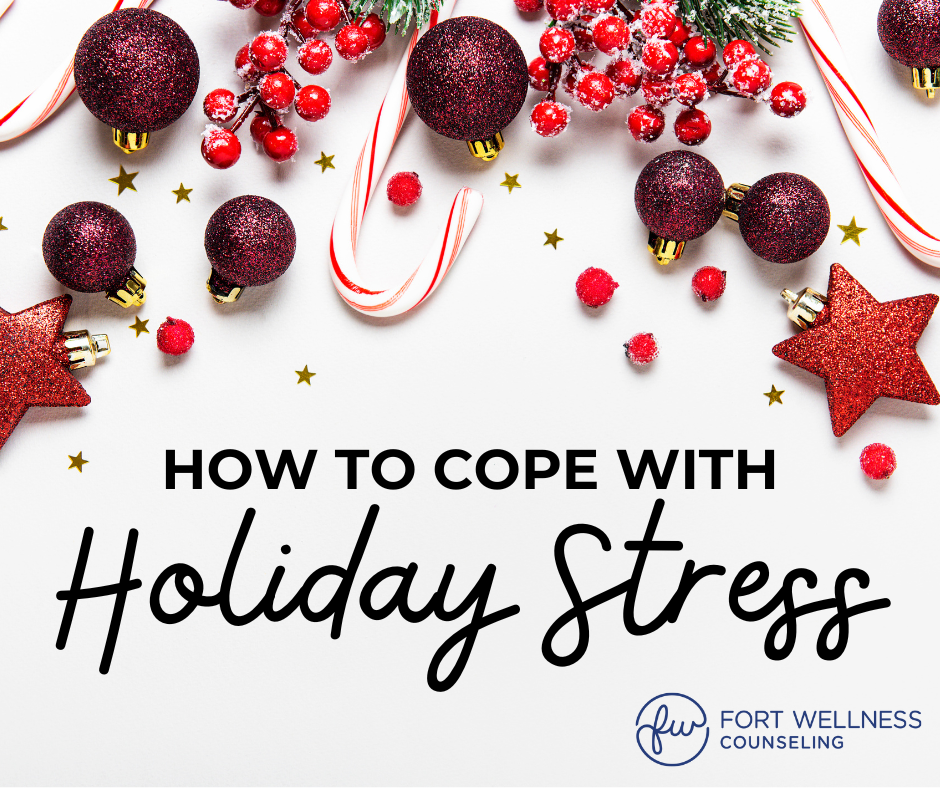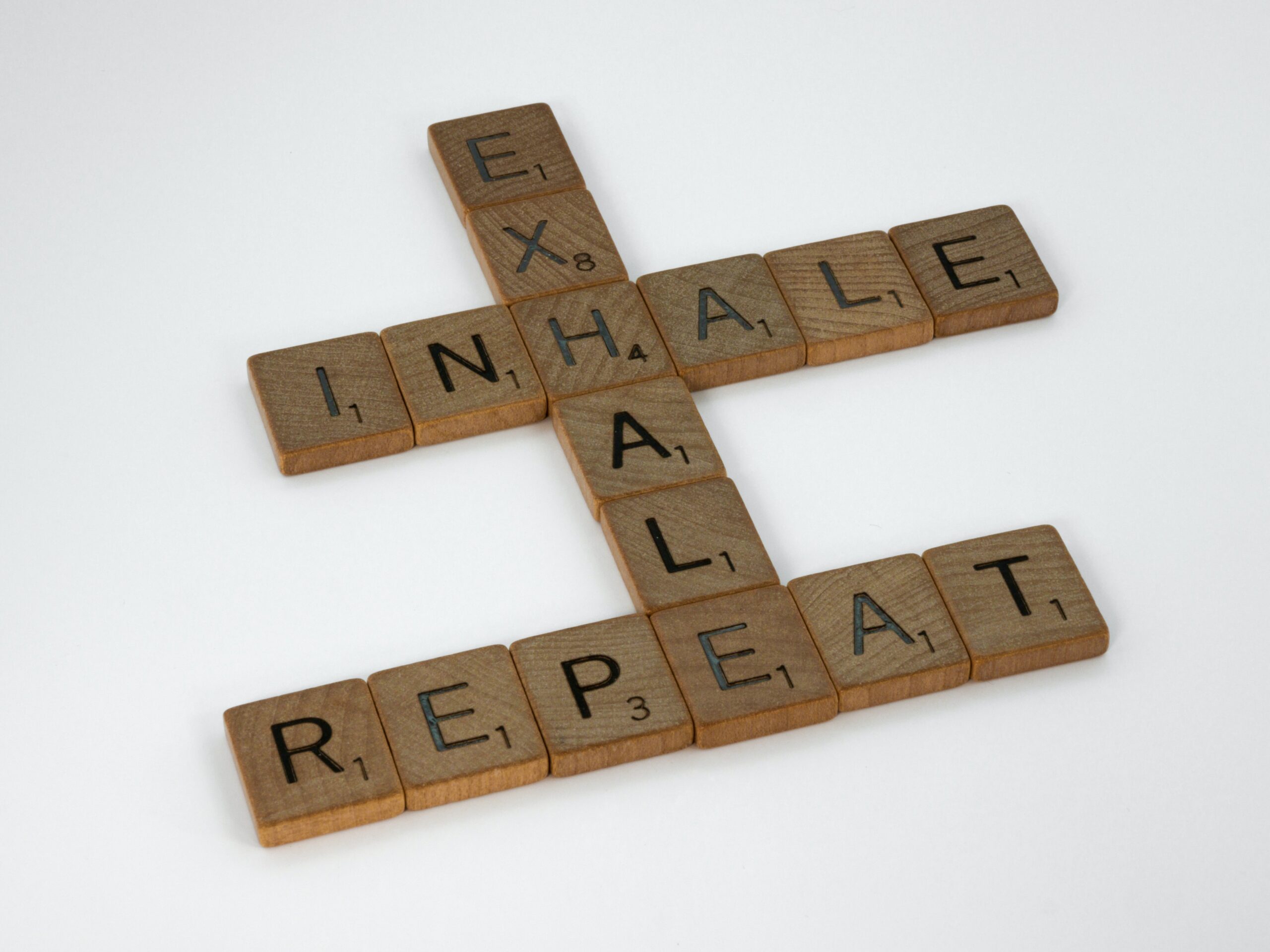
Everything You Need to Know About EMDR Therapy
Everything You Need to Know About EMDR Therapy By: Rane Wallace, MS, LPC, LCDC, SAP Have you heard about EMDR therapy and want to learn

While I hate to say it, stress is something that will pretty much always be there in your life. You certainly have it in your life, whether it is due to life events, daily stressors, or other factors. Stress is a problem that has become especially significant during the pandemic. Poor coping skills can lead to depression and anxiety. In this article, I will talk about what stress is and discuss 15 stress management coping skills and healthy strategies that you can use to manage stress more effectively.
Stress is your body’s response to pressure. It can be caused by so many different things. It can be both good and bad for your body. On the short term, limited amounts of stress can help you stay alert. It gives you the power to push through a difficult situation. Moreover, it also helps you respond to danger and face challenges.
However, the problems with stress come in two different scenarios. First, is when stress is too intense. Imagine an accident, an act of violence, or something similar. Even if it is a short event, it can have a lasting impact. Second, you might face a problem with stress when it’s continuous. Over time, stress wears you down, both physically and emotionally.
In addition, when you experience stress, your brain releases specific hormones, like cortisol and adrenaline. These influence your body. You can feel these effects too. For instance, they interfere with digestion or make your hearts beat faster.
Undoubtedly, these are useful for the short-term responses of running away or just dealing with the situation at hand. But, stress is not so great when it overcomes your body’s ability to manage it, or when it lasts too long. It’s meant as a short-term response.
Finally, the link between too much stress and unhealthy outcomes is well-documented. But, it’s not just how much stress you experience, but also how well you handle it. In conclusion, healthy stress management coping skills can minimize the impact of stress.
Overall, stress is a complex situation that affects your body, your mind, and your emotions. The strategies I will discuss below focus on different aspects of your well-being. Below are 15 different stress management coping skills separated by different categories – physical, social, and emotional.
Undeniably, different situations call for different tools. The more tools you put in your toolbox the better. Try a few of these out at your leisure.
The first category I’m going to discuss are some different physical stress management coping skills. Below, I’ve got 6 different coping skills for you that I’d clump into this category.
A short walk can reduce your stress and relax your body. A little exercise burst can help you center once more. If you can go outside, that’s even better. Natural environments reduce our stress and promote well-being.
Breathing deeply is almost a cliche piece of advice, but that’s for a reason. Breathing deeply is the best way to “shut off” your body’s fight or flight response, triggered by stress. It signals that everything is fine and helps you relax. Plus, it’s very easy to do.
Hot beverages, like tea, can make us feel better and more relaxed. It’s been suggested that they feel like a touch of someone’s hand, so that’s comforting. Coffee and drinks with a lot of caffeine can make you more jittery, so watch out for that.
Cuddle with a pet or hug your significant other. Physical contact is a great natural antidote to stress and relaxes us right away. It helps release hormones that counteract cortisol.
Sleeping properly every night or almost every night can help you resist stress. But taking a nap or just lying down can also reduce stress a lot. Likewise, sleep is a great way to bring down your frustration if you are able to wind down. If not, just lie down, close your eyes, and try a relaxation exercise or meditation.
A quick burst of exercise can help you get rid of some of the stress and produce endorphins, which feel good. Exercise can be a way to express the nervous energy and tension that often accompanies stress. Having exercise as a habit in general can help reduce the impact of stress on your body.
For the most part, stress can feel worse when you are alone or if you are experiencing some fear of missing out (FOMO). Others can help you feel better just by simply being there. Below are 4 different social strategies that you can use to decrease stress.
Something that feels overwhelming for one person can be easy for a few. Ask for help from those around you. It might surprise you how many are willing to help. This can be a constructive way to approach the situation. Being vulnerable is hard. But it can be rewarding. How do you expect people to help you if you are unable to communicate to them that you need help?
Talk to someone else. Social contact can be a great solution for some stressful situations. You don’t have to focus on what’s worrying you, and even a bit of small talk can feel nice. Send a text message, a meme, or just an emoji to someone who is distant. Chat with a colleague or a person in your vicinity. A little social interaction can cheer you up.
If you find your stress is getting out of hand, you can always seek support. It doesn’t have to get really bad before you are “entitled” to support. A counselor, therapist, or doctor can orient you on how to manage your stress and if there is a bigger issue in play at the moment. Besides, there are a lot of benefits of attending therapy with a therapist. If you are interested, learn more about if you should attend therapy and how to find a therapist.
If you are facing a specific situation, it helps to know others have faced it too. Look up online people who discuss similar cases and see what they have done. It can make you feel connected to others rather than isolated by the situation.
Some stress management coping skills, focus directly on the mind and on your emotional state. These can help address feelings of anger, fear, or any other situation that’s linked to your stress. Below are 5 different emotional strategies to help you cope with stress more effectively.
Meditation is a technique that helps you find peace. Meditation relaxes your body and your mind. To meditate, all you need to do is to focus on something specific. It can be your breathing or a phrase or your sensations. Let your thoughts come and go. If you find your mind wandering, bring it back gently to the present. Meditation is a great tool for stress and can improve your emotional well-being.
It’s important to stay informed. But you don’t have to be 100% informed all the time. Steer clear of social media and any news sites that can make you feel worse. Focus on entertainment that comforts you. Better yet, turn off your screens and do something else instead. Reading or walking can do wonders for your emotions. The important thing is to avoid anything that might make you feel more stressed and toxic to your mental health. You can also learn how to get over fomo by attending counseling with a therapist.
Laughter might not always be the best medicine, but it still is a good one. A funny clip or image, a comedy or a joke can help you feel better and relax quickly. Amusement is a good emotion to feel when stressed. If you can make fun of whatever is making you worried, it can appear in a different light as well.
Write about the experience and all the things it makes you feel. Don’t worry about making sense or spelling mistakes. Allow yourself to write freely until you are done. You can also adopt journaling as a practice. Putting your thoughts down on paper gets them out of your head. Things can seem different from this perspective. If you are needing some journaling prompts for mental health, look no further.
A hobby is likely to relax you and bring positive emotions. Do art, music, games, or whatever other activity that helps you escape temporarily in a healthy manner and brings you pleasure. Focus on something that is not the problem for a while. Having fun is a good way to counteract stress. Do you have 15 minutes today to give to a hobby? You can find the time if you want to. Learn more about the top ten stress relieving hobbies.
There are many stress management coping skills and healthy strategies that you can use to reduce the negative effects of stress and get through difficult times. Even if they don’t solve the underlying issue, they can help you manage it better. Choose the strategies that are most effective for you and that are available at the time. You might be too busy to meditate, for example, but have time for a few quick deep breaths.
At the same time, it is worth looking into whatever issues are causing you chronic or intense stress. But you can’t just get rid of stressors entirely. Learning to manage the underlying causes and coping strategies can both help a lot.
Some unhealthy coping strategies include using drugs and alcohol to deal with the effects. Undeniably, these bring more trouble in the long run. Binge eating and eating unhealthy foods are also coping strategies that can result in trouble down the line. Discover the healthy strategies that work best for you and turn to them when you need help with a stressful situation.
Maintaining good habits, like a solid sleep schedule, exercise, and nutrition, can make you more resilient and better able to handle stress. They sustain better physical and mental health. Also, pay attention to your emotional well-being. Above all, try to leave situations that are almost constantly stressful and toxic.
Do you want to stay up to date on what is new at Fort Wellness Counseling? You can follow us on the social media channels of your choice: Facebook, Instagram, YouTube, LinkedIn.

Everything You Need to Know About EMDR Therapy By: Rane Wallace, MS, LPC, LCDC, SAP Have you heard about EMDR therapy and want to learn

What is Nature Therapy? (And Why You Should Be Doing It!) By: Rane Wallace, MS, LPC, LCDC, SAP Let’s face it: there’s just something about

The Benefits of Virtual Therapy in Texas By: Rane Wallace, MS, LPC, LCDC, SAP Technology is changing everything, and healthcare is no different! Thanks to

How to Get Over a Breakup By: Rane Wallace, MS, LPC, LCDC, SAP Breaking up with a romantic partner is painful – no matter the reason

How to Set New Year’s Resolutions By: Rane Wallace, MS, LPC, LCDC, SAP How to Set New Year’s Resolutions Setting goals gives us a sense

How to Cope with Holiday Stress By: Rane Wallace, MS, LPC, LCDC, SAP Say No to Prevent Burnout There are an abundance of obligations that

Trauma Therapy in Fort Worth: Types, Benefits & More By: Rane Wallace, MS, LPC, LCDC, SAP Believe it or not, an estimated 60% of men

How to Communicate Better in Relationships By: Rane Wallace, MS, LPC, LCDC, SAP Whether with coworkers or your significant other, the ability to communicate effectively

How to Prevent Seasonal Affective Disorder (SAD) By: Rane Wallace, MS, LPC, LCDC, SAP If you’re struggling with winter blues, know you’re not alone. SAD

What is a Functioning Alcoholic? By: Rane Wallace, MS, LPC, LCDC, SAP When someone is deemed a ‘high-functioning alcoholic,’ they’re able to carry out daily

How to Help Yourself – And Others – with Suicidal Ideation By: Rane Wallace, MS, LPC, LCDC, SAP September is Suicide Awareness Month. And while

32 Questions to Strengthen Your Relationship By: Rane Wallace, MS, LPC, LCDC, SAP When was the last time you had a meaningful conversation with your

The Fawn Response: How Trauma Can Lead to People Pleasing By: Rane Wallace, MS, LPC, LCDC, SAP Do you often find yourself putting the needs

How to Overcome ‘Hangxiety’ (Post-Drinking Anxiety) By: Rane Wallace, MS, LPC, LCDC, SAP Thought the consequences of drinking heavily were merely physical? Unfortunately, you’ll have

What is Box Breathing? Plus Tips for Beginners By: Rane Wallace, MS, LPC, LCDC, SAP Ever heard of box breathing? This popular relaxation technique involves

Do Mindfulness Exercises for Anxiety Work? By: Rane Wallace, MS, LPC, LCDC, SAP Do mindfulness exercises for anxiety work? If you (or people in your

What is Trauma Bonding? 4 Warning Signs By: Rane Wallace, MS, LPC, LCDC, SAP If you’ve ever been in an abusive relationship and felt bonded

Why Do We Cry? 4 Reasons and Crying Benefits By: Rane Wallace, MS, LPC, LCDC, SAP There’s no getting around it – crying is part

What Is Habit Stacking? (And How to Do It) By: Rane Wallace, MS, LPC, LCDC, SAP Supporting our mental health is one of those goals

5 Tips for Living with Someone with OCD By: Rane Wallace, MS, LPC, LCDC, SAP While living with OCD (obsessive-compulsive disorder) can be demanding, living

What is Assertive Communication? By: Rane Wallace, MS, LPC, LCDC, SAP So, what is assertive communication? Well, in a nutshell, this communication style aims to

PTSD Counseling in Fort Worth: Proven Coping Strategies By: Rane Wallace, MS, LPC, LCDC, SAP For those who didn’t already know, post-traumatic stress disorder (PTSD)

Brainspotting vs. EMDR: What’s the Difference? By: Rane Wallace, MS, LPC, LCDC, SAP According to the National Council for Mental Wellbeing, 70% of American adults

Mindfulness Exercises to Strengthen Your Recovery By: Rane Wallace, MS, LPC, LCDC, SAP Are you recovering from alcohol and/or substance abuse? Self-improvement is a life-long

How to Find a Counselor in Fort Worth By: Rane Wallace, MS, LPC, LCDC, SAP Are you considering therapy? If so, finding a counselor in

How To Not Be Codependent In A Relationship By: Rane Wallace, MS, LPC, LCDC, SAP Wondering how to not be codependent in a relationship? Sometimes

What is Parental Anxiety? Coping Tips from a Therapist By: Rane Wallace, MS, LPC, LCDC, SAP Every parent wants to shield their child from danger

What is EMDR Therapy? By: Rane Wallace, MS, LPC, LCDC, SAP Ever heard of eye movement desensitization and reprocessing therapy? More commonly known as EMDR,

8 Proven Tips to Sleep Better at Night (and Improve Your Mental Health) By: Rane Wallace, MS, LPC, LCDC, SAP Struggling with restless nights and

How to Have a Healthy Relationship with Social Media By: Rane Wallace, MS, LPC, LCDC, SAP In today’s world, there’s no escaping the presence of

What Is The Goal of Psychotherapy? By: Rane Wallace, MS, LPC, LCDC, SAP Have you been considering psychotherapy? The start of a new year is

What is Brainspotting Therapy? By: Rane Wallace, MS, LPC, LCDC, SAP Brainspotting therapy is a kind of alternative therapy that is gaining immense popularity in

Healing After an Affair: 7 Strategies for Affair Recovery Rane Wallace, MS, LPC, LCDC, SAP It doesn’t matter who you are – working through an

12 Benefits of Gratitude By: Rane Wallace, LPC, LCDC, SAP With Thanksgiving coming to a close, we thought it was fitting to explore the link

How to Avoid Seasonal Depression By: Rane Wallace, MS, LPC, LCDC, SAP Daylight savings has officially come and gone. For most of us, this means

Top 10 Ways for How To Keep Your Relationship Strong and Healthy By: Rane Wallace, MS, LPC, LCDC, SAP Relationships can be tricky whether you’re

10 Best Ways to Calm Yourself Down Rane Wallace, MS, LPC, LCDC, SAP When we’re navigating social media, complex relationships, and performance pressures, it’s easy

How to Set Boundaries Between Family Members By: Rane Wallace, MS, LPC, LCDC, SAP Learning how to set boundaries between family members is imperative. From

Understanding the Quarter-Life Crisis By: Rane Wallace, MS, LPC, LCDC, SAP You’ve probably heard of the ominous mid-life crisis, right? Having been stereotyped in plenty

Am I An Alcoholic? 6 Warning Signs of Alcoholism By: Rane Wallace, MS, LPC, LCDC, SAP Be honest, what comes to mind when you think

Top Coping Skills for Anxiety and Stress Management By: Rane Wallace, MS, LPC, LCDC, SAP Being well into our second year of a global pandemic,

5 Self-Care Journaling Prompts for Mental Health By: Rane Wallace, MS, LPC, LCDC, SAP In the world we live in today, mental health struggles are

What to Do While You Wait for Counseling By: Rane Wallace, MS, LPC, LCDC, SAP From problems with anxiety to depression to addiction problems, there

What is Postpartum Depression? (And How to Overcome It) By: Rane Wallace, MS, LPC, LCDC, SAP Have you or a loved one recently had a

The Effects of Stress on Your Body By: Rane Wallace, MS, LPC, LCDC, SAP Are you feeling stressed out? Overwhelmed? Increasingly anxious? If so, you